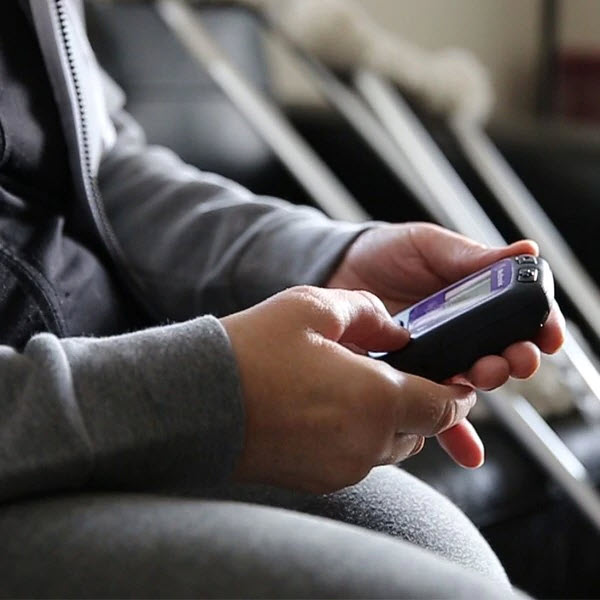
Stories
Curbing Chronic Pain with Technology Instead of Opioids
Janet Becker no longer needs to live in an opioid fog to keep chronic pain from ruining her life. As the opioid epidemic continues to devastate lives across Canada, the resident of Coquitlam, B.C....
Janet Becker no longer needs to live in an opioid fog to keep chronic pain from ruining her life.
As the opioid epidemic continues to devastate lives across Canada, the resident of Coquitlam, B.C. is among a growing number of Canadians turning to technology to control their pain and reduce or eliminate the need for opioids.

Becker has been implanted with a Medtronic spinal cord stimulator, which delivers mild electrical pulses to interrupt pain signals before they reach the brain. She credits the small medical device with reducing the pain she has lived with for more than 13 years. In fact, she is now able to start the process of learning how to walk again with a prosthetic, helping to get her out of the wheelchair she has relied on for many years.
“I just want get on with my life the best way that I can, and the stimulator helps me to do that every day,” she says. “If the pain begins to interfere, I can simply switch programs and adjust the settings. It really works wonders for me.”
Becker, a native of South Africa, immigrated to Canada nearly 22 years ago and initially enjoyed a busy, rewarding life. She worked for an event planning company, organizing conferences and conventions in western Canada.
In 2000 she began experiencing health problems and was diagnosed with rheumatoid arthritis. A biopsy she received on her knee led to Complex Regional Pain Syndrome (CRPS), and although her leg was amputated 13 years ago, she continued to suffer debilitating chronic pain.

Initially, Becker was prescribed a variety of opioids to deal with her pain, including fentanyl and hydromorphone. While the powerful drugs dulled the pain, she didn’t like how they clouded her mind, making it difficult for her to concentrate and do things she enjoyed, like reading or conversing with friends and family.
“Opioids don’t take the pain away, but they give you the distance from it. You feel spacy all the time,” she says.
Becker was also aware of the link between people using opioids to manage their pain and the risk of addiction. While she felt she personally wouldn’t become dependent on opioids, she wanted to find an alternative therapy. Spinal cord stimulation has allowed her to reclaim her active lifestyle and nearly eliminate her use of opioids.
“I rarely feel the need to take pain medication now,” she says. “Having the spinal cord stimulator helps push those pain messages into the background.”
Becker upgraded her spinal cord stimulator four years ago and is beginning to regain the mobility she lost when her leg was amputated. She is currently being fitted with a prosthetic limb and has started rehabilitation to learn how to walk with her new leg.
I rarely feel the need to take pain medication now,” she says. “Having the spinal cord stimulator helps push those pain messages into the background.
Janet Becker, SCS patient
Most importantly, Becker says the spinal cord stimulator has given her back a sense of hope and a positive outlook. She can concentrate on enjoying her life, spending time with family, and feeling productive through her work, instead of focusing all her energy on pain.
“I don’t have to think about pain constantly, I can just live,” she says.


